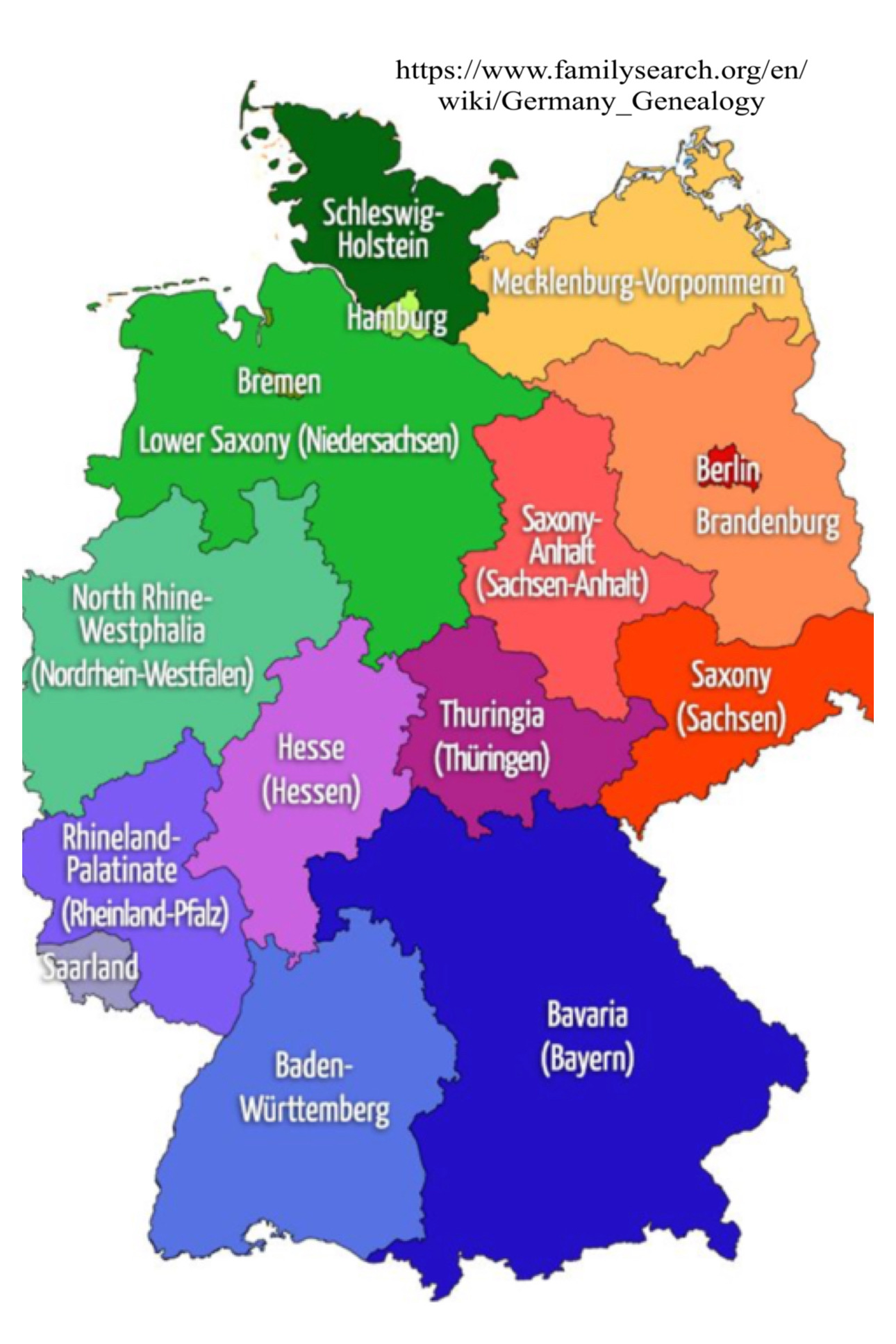Do you know where your German ancestors' place of origin is? There is no central repository of records in Germany, and during the period when the highest amount of emigration occurred there was no standard of what records were kept and preserved. What does this mean? Your German research will need to be done with local records.
What can you do if you do not know where your ancestors are from? Here are some tips to get you started on your journey.
The first step is have you gone through the things you may have at home? A family Bible, scrapbooks, birth and/or wedding announcements, obituaries, yearbooks, etc. Maybe someone saved letters that were written from their native country. Look at the things you may think are scraps of paper. You never know what you may find!
Next, move online to start searching. Start with Ancestry and FamilySearch. They both have German records. Ancestry has Württemburg Emigration Lists which tracks thousands of Germans who applied to leave Württemburg. You can also check out the International Genealogical Index (IGI). It is a database with records from German church registers. You can run any names found at IGI through FamilySearch to find a high concentration of the name you are looking for. You can always use your search engine to find German sites. You can look up information like German Roots or Auswanderung aus Südwestdeutschland. There are always places to go to look for obituaries like newspapers.com, GenealogyBank, Legacy.com and more. But do not forget BillionGraves, Find A Grave, Nationwide Gravesite Locator, and more.
Finally, some of the best information can be found at local public libraries. So if you know where your German ancestors lived in the United States, go check out their library, county historical society, and, if they have one, a local genealogical library. You may even find some books online about your family. In the summer of 2022 we did a family genealogy trip. Some of the best information we found was in the local libraries. They had books that people had compiled about their family, which happened to also be my husband's family. One library we went into to look for my family had a whole genealogical collection room, and it felt like 90% of the room was filled with my family's records which I had never seen before. The librarian joked when I said the names I was looking for that I was probably related to most people outside walking around town.
While there are many options for finding where your German ancestors came from, these are a few steps and places you can go to start your search. Just remember if any records you find are in German you can get it translated. While it may seem like nothing big or important, a small tidbit in an obituary can open up big doors.
We can help
If you need any help translating or finding your ancestors, just let us know.


